
5 Min Read
May 7, 2017
9 Practical Tips to Manage Stress and Blood Pressure on World Hypertension Day
May 17 is World Hypertension Day! We want to create awareness about how fatal this disease can be and extend help by giving these practical tips that would be beneficial to your wellness!

May 17 is World Hypertension Day! We want to create awareness about how fatal this disease can be and extend help by giving these practical tips that would be beneficial to your wellness!
Are you ready to increase your ability to cope with life’s challenges? Here are nine surefire ways to manage stress and help you manage your blood pressure:
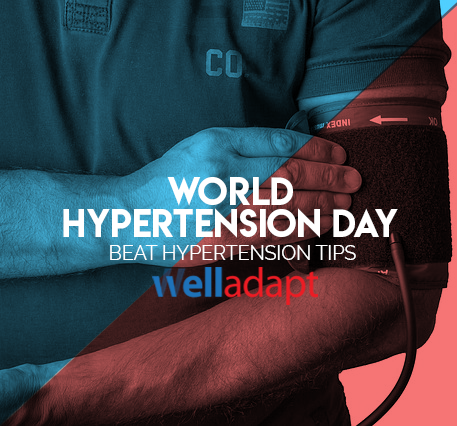
Happy World Hypertension Day!
To know more about World Hypertension Day, click the link below:

Include time in your schedule to take care of yourself. Use a calendar to map out your activities, events, and time for self-care. Plan ahead and walk through your schedule mentally. If your calendar is too full and you feel anxious about following through on all of your tasks, it’s time to approach them one-by-one, identify them, and break them down. Your heart will thank you.
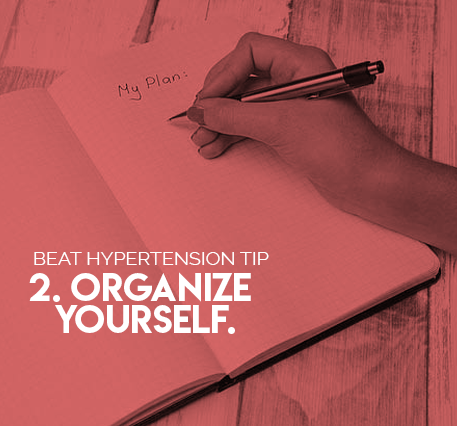
Spend time each day getting ready for the next day. Organize your task list into “must do,” “should do,” and “could do” sections. Push as much as you can to the “should do” and “could do” items, so that your full focus is on as few “must do” items as possible. Then, start with the most important “must do” items, and approach the other sections as time and energy permit.

If your plate is full, say “no” to requests for your time and energy. If “no” doesn’t work in a particular situation, find a compromise by letting people know what’s on your plate and when you could reasonably expect to meet or have something done. This can be a powerful tool in reducing your overall stress and anxiety.
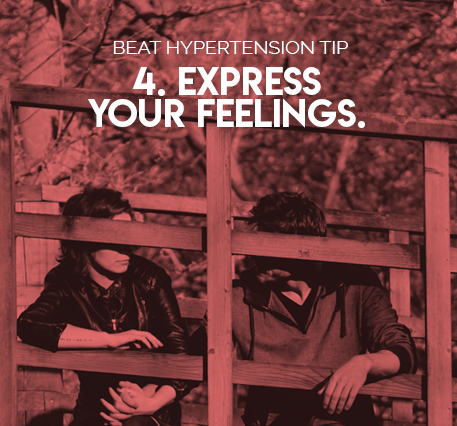
Feeling overwhelmed? Talk about it! Let a trusted friend or loved one be there for you; that’s what they’re there for! People with hypertension are known to bottle up their emotions. As you practice expressing yourself, you’ll increase your ability to find and express the emotions you’re feeling and reflect on them. Annoyance and frustration, for example, are forms of anger. When you notice you’re feeling these emotions, ask yourself what is causing them, and whether those things warrant the negative energy. Then, decide what you can do about it! Adjusting your expectations and your response to the expectations placed upon you can do wonders for your stress level.
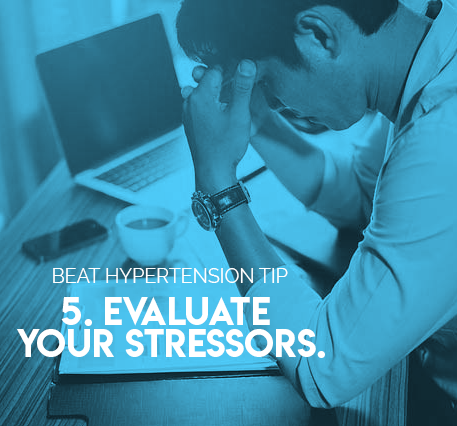
Have a heart-to-heart with stress, and what you can do about it step-by-step. Make a list of your stressors and create your plan to either cope with them or remove them. Go one by one. Determine what you can’t change, avoid, or eliminate; then get creative about handling them! If traffic causes you stress, leave an hour early and finish your last hour of work at home. If you have a family member that creates stress for you, respectfully decline frequent social situations that include them. Taking a moment to look at your stressors and what you can do about them can yield positive results, and you’ll get better at it each time you practice.
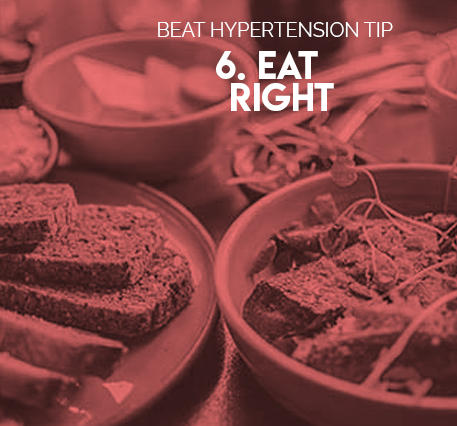
Focusing on healthier snacking and eating has been shown to reduce blood pressure and improve cardiovascular health. Stress wears down your ability to make good choices. Irrational choices stem from being tired. Your resistance to sugar-filled foods and crunchy salty chips is worn down by exhaustion, studies say. Getting an energy fix from healthy choices such as honey-crisp apples,crunchy nuts, carrots, celery, dehydrated fruit, or popcorn can steer you away from further emotional distress. Avoid all sugary drinks, especially those with artificial sweeteners. A recent study published in Stroke, by the American Heart Association Journal showed that artificially sweetened drinks can increase your risk of stroke by upto three times.
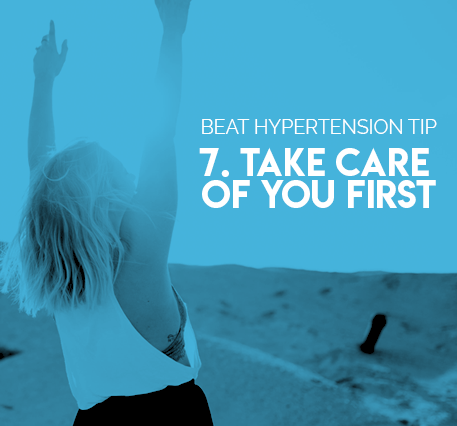
Eat three healthy meals a day and prepare for them before you do anything else for anyone else. Get 8 hours of sleep nightly, exercise for at least 30 minutes every day, and take time to reflect on your feelings before prioritizing anything else in your life. Taking care of yourself makes you stronger, which will put you in a better position to help others!
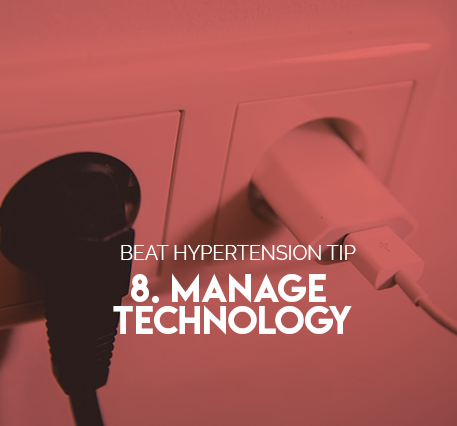
Gain control over your cell phones, computers and iPads. The distractions of online interactions like social media and emails can rob you of valuable minutes throughout the day, making you less productive and more stressed-out about your “must do” list. Setting boundaries can help! Practice “unplugging” from your electronic devices at the end of the day, or at least putting them in a “time-out” for a while. Do your life a favor: don’t let it be run by devices!
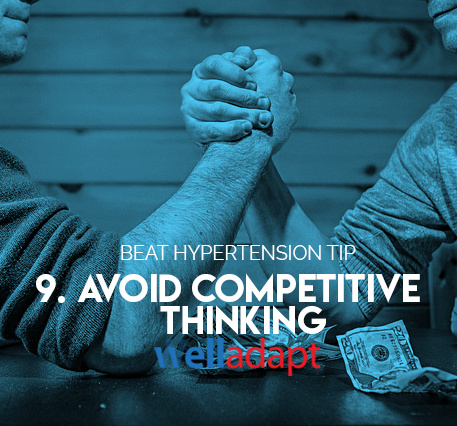
Do you create our own stress? Envy and jealousy can build up stress and resentment, neither of which is beneficial to your health. Adjust your expectations. Focus on humility and gratitude for the little accomplishments and joys in your life. Positive thinking perpetuates itself when practiced in a mindful fashion.

